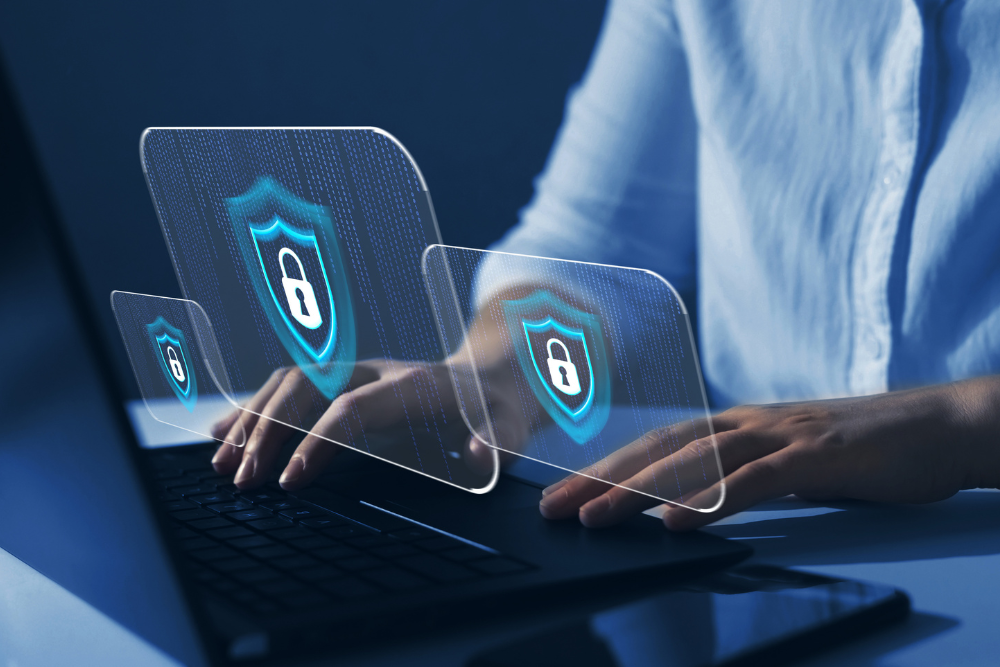An ongoing study conducted by the Fuqua School of Business at Duke University has been tracking the effects of cybercrime on businesses for over 19 years. Their most recent report found that 80 percent of all businesses have been successfully hacked to steal or alter data or to make company secrets public.
The Duke study found that 60 percent of businesses with more than 1,000 employees have been through at least one cyberattack. Meanwhile, 85 percent of companies with fewer than 1,000 employees had been hacked.
Said John Graham, a professor at the Fuqua School of Business and the director of the study. “Corporate America is an easy mark for hackers, as we are repeatedly reminded in the news. However, it is not just big firms like Target being hit – 85 percent of smaller firms are also under siege. No one appears safe. The situation may be worse than reported because many firms might not even realize that they have been attacked.”
In the current cybersecurity environment, the small businesses that most people would suppose are the least vulnerable to cyberattacks are the most at risk of data breaches. In this article, we´ll give you five reasons your Ohio business should be concerned about cybersecurity and take a bird’s-eye view of the biggest current cyber threats. We´ll also tell you how Managed Print Services can play a role in keeping your data safe.
Why Taking Data Security Seriously Is Critical for Businesses
No modern business can operate without an internet connection, but every online connection raises the possibility of becoming a victim of cybercrime. Here are five reasons every business no matter its size needs to take data security seriously.
Business disruption
What would happen to your Columbus business if you suddenly lost all the accounts receivable records? Or if the bid you were preparing for an important job was leaked to your competition? Or if you couldn’t calculate your payroll?
Cybersecurity breaches at small businesses are especially disruptive when employees can´t carry on their day-to-day work. A report by the Cyber Security Breaches Survey found that 60 percent of small businesses that hackers hit still had not restored normal operations six months after a cyberattack. For many, this meant going out of business.
Regulatory fines
You don’t have to operate out of California or in the European Union to be affected by California’s Consumer Protection Act or the new EU General Data Protection Regulation (GDPR). Fines for allowing customer data to be exposed can run into millions of dollars. Even if you don’t have to pay penalties under the GDPR, you may lose access to European customers forever.
Intellectual property and strategic information
Companies store processes, patent applications, and strategic plans on computers. They also store sensitive details about their employees, vendors, and customers. If this data is corrupted or compromised, it can be disastrous.
Third-party information
Customers and vendors may have a cause for action against your company for leaking their information to the public. Cyber insurance may absorb your legal fees, courtroom costs, and any judgment the court declares against your company, but defending your case in court is a tremendous drain of valuable time.
Reputation
A hack on your data systems can do a great deal of damage to your reputation as a reliable partner to your customers and your suppliers. It can take a major hit.
An Overview of Current Cybersecurity Threats
How do hackers get into your IT systems?
The most obvious entry points are malware, trojans, viruses, and worms. Of these four, the most common method of cyberattack is the trojan. Your employee updates trusted software, like Word or Adobe, but the update is infected with a trojan that changes other software in your system. This is not the fault of the website you trust. The trojan directs you away from it.
Adware and spyware redirect Google search results.
Sometimes malware lurks in advertising on legitimate websites. It is usually randomized with “safe” ads, making it harder to catch. Or free software may come bundled with spyware.
Unpatched software provides easy entry points for cybercriminals.
Does it ever seem like your laptop is just a device for Windows updates? The simple fact is that nearly all major programs have security flaws. As the software companies discover them, they release patches.
Your company needs to keep its software up to date, so it has all the critical patches to defend you against bad actors on the internet.
Don’t overlook the risk of phishing attacks.
Even after years of publicity about cyberattacks, people still fall for phishing attacks. They click on links to sites from people they do not know. They download attachments from unknown senders. They give sensitive information to complete strangers.
Part of taking cybersecurity seriously is employee education.
Cybersecurity training for remote workers is especially important. But making sure your employees know cyber safety rules is just part of the battle.
How to Protect Your Data from Cybersecurity Breaches
Every company must take some basic measures to protect data from cybersecurity breaches.
Employees should be encouraged to use virtual private networks (VPNs) when accessing company data from their home computers. Any employee working from home should be encouraged to change passwords for accessing their Internet Service Providers frequently.
Protect your systems with multi-factor authentication. Usually, this involves a code sent to an employee’s phone and entered as a second step in authenticating their credentials. Or consider restricting access to some of your systems to those who need them most.
But don’t overlook the cybersecurity made possible by using Managed Print Services. Don’t let printers become the weak link in your cybersecurity plan. Ensure data isn’t hacked and documents aren’t stolen when your employees make hard copies.
For more information about how to protect your Cincinnati, Columbus, Dayton, or Mansfield business, contact the OIT division of Modern Office Methods today. We’ll show you exactly how we can meet your printing needs and increase your cybersecurity in the process.



Leave A Comment
You must be logged in to post a comment.